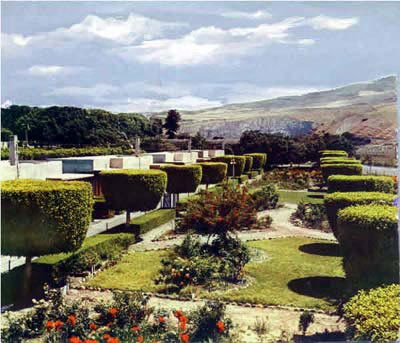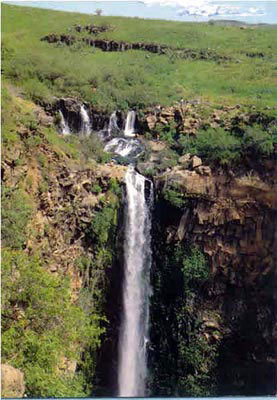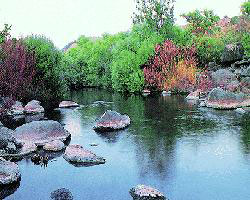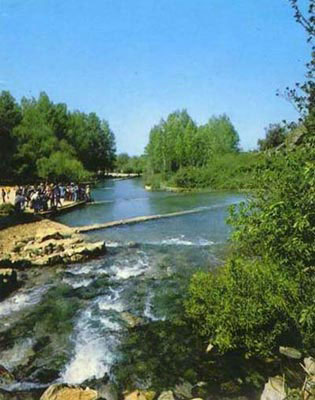It is located in the south-western part of Syria and is known also as the Golan Governorate. It is characterized by its varied topographical reliefs from the summit of Hermon Mountain (Djebel al-Sheikh) with an altitude of 2814m. above sea-level to the lake of Tiberias which sinks 212m. below sea-level. While white snow covers the summit and slopes of Hermon Mountain, people bathe in the thermal mineral water baths of Hemeh.
This governorate possesses abundant water resources and waters of its springs pour into the Jordan and the Yarmouk Rivers. Prehistoric man settled in this region and his remains were discovered in many sites (Banat Yaakub Bridge, Akkash Hill).
Golan
Old historical texts refer to the Golan as the extension of the slopes of Mt. Hermon.
Latin references mention Golan as the area north of River Jordan between the slopes of Mt. Hermon and the River Yarmouk (HEROMAX).
The Golan was known for its fertility and pastoral meadows since the year 2000 B.C.
In ancient times the Golan had fortified cities and sites such as Banias and Fiq.
During the Canaanite period Banias was known as Laish, and most probably, it was the capital of an Aramaic kingdom /Beit Rahoub/.
The region of Banias had had relations with the Canaanite, the Amorite and the Aramaic kingdoms.
In Dan there are ruins that belong to the Aramaic God "Hadad" .
Fiq was mentioned in the Bible and in many historical texts.
Greek and Arab geographers mentioned Fiq as a strategic point under many names: Auzip (afiqa), and Yaqout al Hamwi (AFiq. Fiq and Deir Fiq.)
During the Canaanite period Banias was known as Laish, and most probably, it was the capital of an Aramaic kingdom /Beit Rahoub/.
The region of Banias had had relations with the Canaanite, the Amorite and the Aramaic kingdoms.
In Dan there are ruins that belong to the Aramaic God "Hadad" .
Fiq was mentioned in the Bible and in many historical texts.
Greek and Arab geographers mentioned Fiq as a strategic point under many names: Auzip (afiqa), and Yaqout al Hamwi (AFiq. Fiq and Deir Fiq.)





